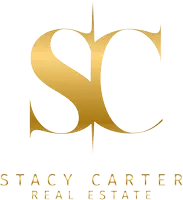Financing Options You Should Know Before Buying a Home
**Navigating Financing Options for Purchasing a Home: What You Need to Know**
Buying a home is a significant financial commitment, and understanding your financing options can make a substantial difference in your homebuying experience. From traditional mortgages to more specialized loans, here’s a guide to the primary financing options available for purchasing a home.
### 1. **Fixed-Rate Mortgages**
**Overview**: The most common type of mortgage, fixed-rate loans offer a constant interest rate and consistent monthly payments throughout the term of the loan.
**Advantages**:
- **Predictability**: Your monthly payments remain stable, making it easier to budget.
- **Long-Term Stability**: Ideal if you plan to stay in your home for a long time.
**Disadvantages**:
- **Higher Initial Rates**: Fixed-rate mortgages can have higher starting interest rates compared to adjustable-rate options.
**Best For**: Buyers who prefer stability and plan to stay in their home for many years.
### 2. **Adjustable-Rate Mortgages (ARMs)**
**Overview**: ARMs have an interest rate that adjusts periodically based on market conditions. They typically start with a lower rate than fixed-rate mortgages.
**Advantages**:
- **Lower Initial Rates**: Often lower than fixed-rate mortgages, which can result in lower initial payments.
- **Potential Savings**: If interest rates stay low, you could save money over the life of the loan.
**Disadvantages**:
- **Payment Fluctuations**: Your payments can increase if interest rates rise.
- **Uncertainty**: Less predictable compared to fixed-rate mortgages.
**Best For**: Buyers who plan to move or refinance within a few years or who are comfortable with potential payment fluctuations.
### 3. **Federal Housing Administration (FHA) Loans**
**Overview**: FHA loans are backed by the Federal Housing Administration and are designed to help low-to-moderate-income buyers.
**Advantages**:
- **Low Down Payment**: Requires as little as 3.5% down.
- **Flexible Credit Requirements**: Easier for buyers with less-than-perfect credit to qualify.
**Disadvantages**:
- **Mortgage Insurance**: Requires both an upfront and annual mortgage insurance premium (MIP), which can increase overall costs.
**Best For**: First-time homebuyers or those with less substantial savings or lower credit scores.
### 4. **Veterans Affairs (VA) Loans**
**Overview**: VA loans are available to veterans, active-duty service members, and certain other qualified individuals, backed by the Department of Veterans Affairs.
**Advantages**:
- **No Down Payment**: Often allows for 100% financing with no down payment required.
- **No Private Mortgage Insurance (PMI)**: VA loans do not require PMI, reducing monthly costs.
**Disadvantages**:
- **Eligibility Requirements**: Available only to veterans, service members, and certain others.
**Best For**: Eligible veterans and active military members looking for favorable loan terms.
### 5. **United States Department of Agriculture (USDA) Loans**
**Overview**: USDA loans are designed to support homebuyers in rural areas, with backing from the U.S. Department of Agriculture.
**Advantages**:
- **No Down Payment**: Requires no down payment, which can be a significant advantage.
- **Competitive Interest Rates**: Generally offers favorable terms compared to conventional loans.
**Disadvantages**:
- **Location Restrictions**: Only available for homes in eligible rural areas.
- **Income Limits**: There are income eligibility requirements based on location and household size.
**Best For**: Buyers looking to purchase a home in a rural or suburban area who meet income and location criteria.
### 6. **Jumbo Loans**
**Overview**: Jumbo loans are non-conforming loans that exceed the limits set by Fannie Mae and Freddie Mac, making them a good option for higher-priced homes.
**Advantages**:
- **Higher Loan Limits**: Allows for financing of more expensive properties that exceed conforming loan limits.
- **Flexibility**: May offer a variety of term lengths and adjustable rates.
**Disadvantages**:
- **Stricter Requirements**: Generally require a larger down payment, higher credit scores, and lower debt-to-income ratios.
- **Higher Interest Rates**: Often have higher interest rates than conforming loans.
**Best For**: Buyers purchasing high-end properties that exceed conventional loan limits.
### **Choosing the Right Option**
When deciding on the best financing option for purchasing a home, consider the following factors:
- **Down Payment**: Determine how much you can afford to put down. Some loans require as little as 0% to 5%, while others may require more.
- **Interest Rates**: Compare rates to find the most affordable option for your situation.
- **Loan Terms**: Consider how long you plan to stay in the home and choose a loan term that aligns with your plans.
- **Monthly Payments**: Evaluate what you can comfortably afford each month, including principal, interest, taxes, and insurance.
### **Final Thoughts**
Choosing the right financing option for purchasing a home involves understanding your financial situation, future plans, and the terms of different loan products. By carefully evaluating your options and consulting with financial professionals, you can find a mortgage that fits your needs and helps you achieve your homeownership goals.
Happy homebuying!
Categories
Recent Posts







MY BLOGS
MY BLOGS
"My job is to find and attract mastery-based agents to the office, protect the culture, and make sure everyone is happy! "
41593 Winchester Rd Ste 200, Temecula, California, 92590, United States
